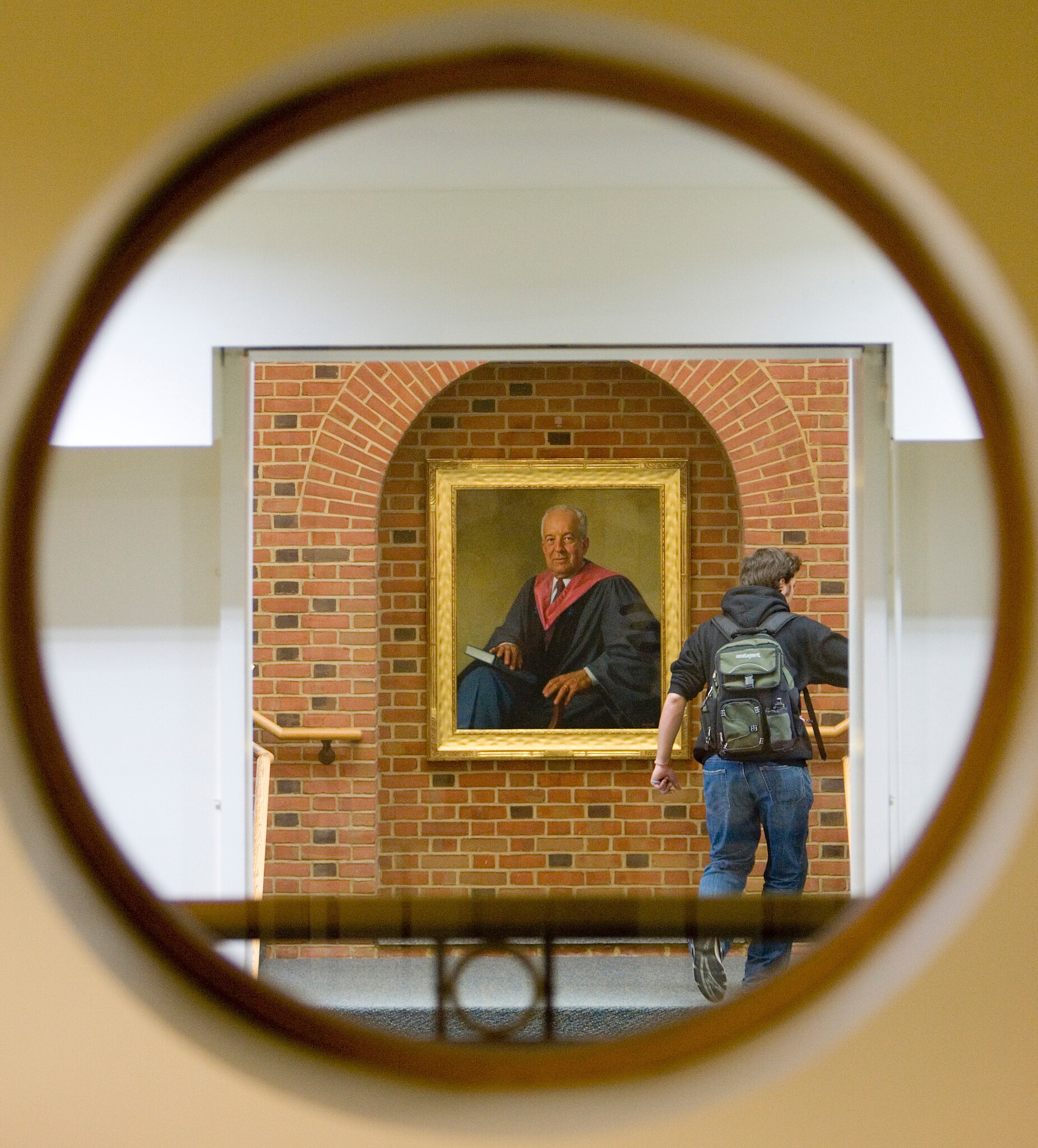The loss of a legend at Wake Forest
In this Issue: remembering “Mr. Wake Forest,” Dr. Ed Wilson (’43)
Although we had planned not to run Daily Deacs during Spring Break, today I have some sad news to report from campus. I am sharing a message that was written about the passing of the greatest of all Wake Foresters, Dr. Edwin G. Wilson (’43), Provost Emeritus and Professor of English; he died last night at the age of 101. So much of what I know about how to be a good Wake Forester, I learned from Ed Wilson’s example. May his memory be a blessing.
“There are times in your career when you know something will have to be done and you dread having to do it. Today is one of those days. We have the unbelievably sad duty to tell you that we have lost a tremendous Wake Forester. Dr. Edwin G. Wilson (’43), affectionately known to generations of alumni as “Mr. Wake Forest,” former professor of English literature (with a specialty in British Romantic poetry) and former Provost, died last night at the age of 101.
“Heartbroken” is not a big enough word to encompass what our alumni, faculty, staff (and all who knew and loved Dr. Wilson) are feeling today.
None of us can remember another person more universally beloved at Wake Forest than Dr. Wilson. Every campus has a professor whose reputation is legendary, whose classes you had to try to register for multiple times before you got in. That was Dr. Wilson. His ‘British Romantic Poets’ and ‘Blake, Yeats, and Thomas’ classes were perpetually filled to the brim – and not just with English majors, with students of all majors and interests. He was not only a brilliant teacher, but the most kind and gentle man you could ever meet. Even when he was Provost – a very busy job – he scheduled 1-on-1 meetings in his office with all 60 of his students so he could get to know each student personally.
Dr. Wilson entered Wake Forest in the fall of 1939 as a student. At the time, freshmen were required to wear a button that said “Friendliness and Honor” so they would be reminded of the campus culture and would uphold it. Throughout his career – and in all his roles, both academic and administrative – he lived out friendliness and honor. He was the keeper of the flame of the values of Wake Forest and ensured he inspired that flame in everyone he encountered.
Your students would not have had the chance to have him as a faculty member, as he retired from teaching long ago. But your Deacs may have had the chance to see him at an event on campus. Or they may have seen a kindly, older Southern gentleman coming and going in the ZSR Library, where he had an office. At minimum, your students would have seen his portrait as they walked into the Wilson Wing of the ZSR, which was named for him.
Where your students would surely have felt his influence is in interactions they had with people on campus who strove to emulate Dr. Wilson’s example: by showing our students personal attention, genuine caring, a commitment to honor, and warm Southern hospitality.
The University has established a remembrance website – edwilson.wfu.edu – for people to share memories and leave condolences. You can read details about Dr. Wilson’s life, see photos, and explore links to past stories and speeches. Details about a memorial service will be posted on the remembrance site when they are available.
Please join us in offering your thoughts and prayers to his family and all those who mourn his passing. He truly was the greatest Wake Forester.
PS – It seems like one of the most fitting ways to honor Dr. Wilson’s memory is through the British Romantic poetry he loved. He once said that Matthew Arnold’s Dover Beach was one of his very favorites. If you wish to read, it is below.”
Dover Beach
By Matthew Arnold
The sea is calm tonight.
The tide is full, the moon lies fair
Upon the straits; on the French coast the light
Gleams and is gone; the cliffs of England stand,
Glimmering and vast, out in the tranquil bay.
Come to the window, sweet is the night-air!
Only, from the long line of spray
Where the sea meets the moon-blanched land,
Listen! you hear the grating roar
Of pebbles which the waves draw back, and fling,
At their return, up the high strand,
Begin, and cease, and then again begin,
With tremulous cadence slow, and bring
The eternal note of sadness in.
Sophocles long ago
Heard it on the Ægean, and it brought
Into his mind the turbid ebb and flow
Of human misery; we
Find also in the sound a thought,
Hearing it by this distant northern sea.
The Sea of Faith
Was once, too, at the full, and round earth’s shore
Lay like the folds of a bright girdle furled.
But now I only hear
Its melancholy, long, withdrawing roar,
Retreating, to the breath
Of the night-wind, down the vast edges drear
And naked shingles of the world.
Ah, love, let us be true
To one another! for the world, which seems
To lie before us like a land of dreams,
So various, so beautiful, so new,
Hath really neither joy, nor love, nor light,
Nor certitude, nor peace, nor help for pain;
And we are here as on a darkling plain
Swept with confused alarms of struggle and flight,
Where ignorant armies clash by night.

